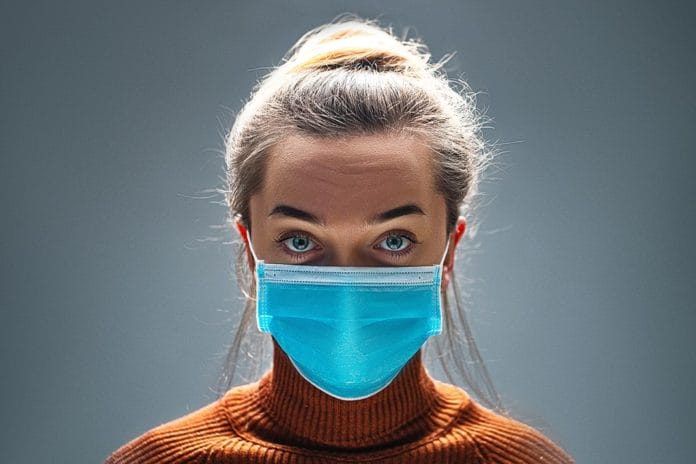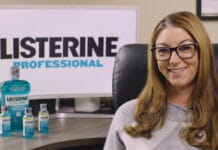Editor’s Note: Information about COVID-19 is changing on a daily, sometimes hourly, basis. We have made every attempt to ensure this article is up-to-date at the time of publication, but with the rapid changes occurring, some information may have changed since publication. Please visit https://www.coronavirus.
Fellow hygienists, I hope this finds you all at home safely sheltering with your families. We all know the current pandemic has changed daily life in ways we never imagined, but what if we help to turn the tides for post-coronavirus?
We are seeing literally thousands of hygiene posts online stating hygienists are working scared, feeling threatened by job loss, or feeling disrespected, among so many more unbelievably negative postings. Right now, we should be able to focus on our families, our health, and making sure we have the supplies needed to shelter in place. Not one of us should be struggling with their work environment.
This virus is going to teach us many lessons in the coming weeks and months. Many of them will potentially be unpleasant and undoubtedly stressful. Hopefully, we will also learn resiliency, strength, compassion, and a love for one another that is deeper and more meaningful.
Only the Best Infection Control
What if we also use this time to advocate for our role in the dental team? If hygienists collectively state that we will only follow strict guidelines for what is considered to be “standard of care” treatment. We all use disposable products and proper level products as recommended. We no longer choose to treat patients wearing the same mask all day, or ASTM level 1 masks if ASTM level 3 is what is required for safety. We would never agree to washing gloves and reusing them.
Taking a Stand for Career
Obviously, in the coming months, there may be many shortages, and we need to do what we feel is best for our own health and safety, as well as protecting our licenses. But what if after all the dust settles, we truly take a stand for our career!
It seems that many hygienists feel disrespected by the lack of time allowed for treatment, the poor quality of instruments or lack of enough instruments, and poor benefit options. What if now, as demand for our services will increase as we seek to reschedule all the recare and periodontal patients, we voice as a group that our degrees matter.
Our collective knowledge base is needed, necessary, and adds to not just the overall bottom dollar of the office financially but also to the health of our patients.
The Proof About Our Value
It is, of course, probable that we need to demonstrate our collective value. We have proof to offer that our value is far greater than just the percentage of dollars we bring in through services rendered in our chair.
Hygienists often locate areas of treatment needed during our appointment before the dentist has even arrived for the examination of the patient. We develop relationships and build trust for the office and in casual conversations, mention areas of potential treatment needed. We periodontal probe and discuss our findings and treatment options with patients. Hygienists help to ensure that patients return for follow up care by establishing a need and educating patients on oral hygiene recommendations and treatment options.
Hygiene services are to be valued. Perhaps the distrust, anger, and frustration of so many hygienists can help to be relieved by reformatting our desires for excellent patient care. Based on our knowledge and professional expertise, we know how much time to schedule a specific patient for and what specific treatment to schedule. Our recommendations are what we should require and precisely what should be scheduled. At what point did some offices decide they knew better? And why are we allowing it?
We all know sharp instruments are more comfortable for both operator and patient, so why do we not require them? Can instruments be sent to services for sharpening or can time be scheduled in for maintenance of them? Our hands are too important to use poorly designed or dull instruments, and efficiency is decreased by dull instrumentation as well as a decrease in patient comfort. We know we must practice safety appropriately to help avoid repetitive motion injuries.
In Search of Benefits
Benefits are difficult for so many, and we read on hygiene blogs and sites that, due to our higher wages, benefits are minimal for many offices. Why are we not negotiating with our employers about what we feel is fair and reasonable?
Many times, hygienists are not asking, and no one is offering. Start the conversation and ask for what you feel you deserve. Not asking gets you nothing, and it does not give you the right to vent about being disrespected. Ask.
Make lists of what you want your ideal work-life to be and go after it. While we will not all achieve utopia, many more of us will be able to show value in our services. Multiple offices already create excellent work environments with continuing education, uniforms allowances, paid time off, perhaps dentistry for the family, and a host of other wonderful options.
I hope you are all working with one of those teams. If not, could you spend a few moments in this time of shelter to decide the direction you choose your career to go?











